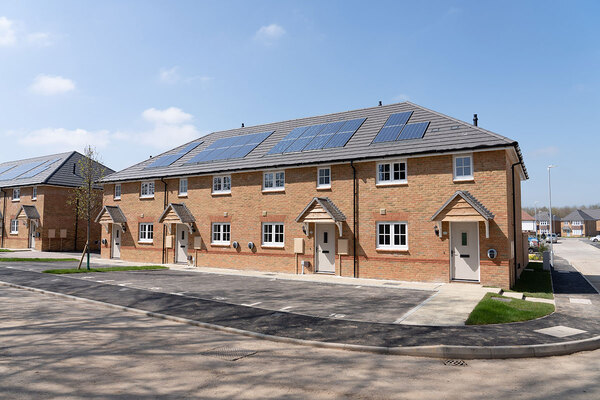You are viewing 1 of your 1 free articles
Giant equity investor to 'compete head on' with associations for Section 106
Huge private equity firm Blackstone will “compete head-on with housing associations” for Section 106 allocations, a source close to its multimillion pound deal with Sage has told Inside Housing.
The source said that Blackstone, which Inside Housing understands intends to buy part of Sage Housing Association, would target only Section 106 allocations – affordable housing that developers can be required to deliver – on a large scale around the country.
Inside Housing understands that all properties will be for rent at Local Housing Allowance rates or lower, with Blackstone planning to give local authorities nomination rights.
Sage was bought by residential investors Regis Group in 2017 and started buying Section 106 allocations of between five and 10 homes.
They have won a third of their bids since then, according to the source.
The source told Inside Housing that Sage has already bought enough properties to be considered a medium-sized housing association, and that they haven’t shown up in Homes and Communities Agency (HCA) statistics yet because they haven’t been completed.
The deal, the source said, would enable Sage to run this strategy on a much larger scale. It is understood that Sage would own all the homes itself and that Blackstone has no plans to work with other housing associations.
Will Perry, assistant director at the HCA, told Inside Housing: “We have established regulatory contact with Sage as with other registered providers in keeping with co-regulatory principles.
“We tailor our regulation to suit what the provider is, and we already have a number of for-profits with different parties involved in their investor base, so we’ll deal with what we find.”
Joe Beswick, housing lead at the New Economics Foundation, who has written extensively about Blackstone’s real estate investments, said: “[Blackstone has] obviously identified the UK social housing sector as one in which the assets are undervalued.”
Robert Beiley, a partner in the housing and regeneration department at Trowers & Hamlins, added: “Residential per se and affordable housing particularly are now seen as a credible investment class for equity investors and therefore this is very much something we’re going to see more of.”












